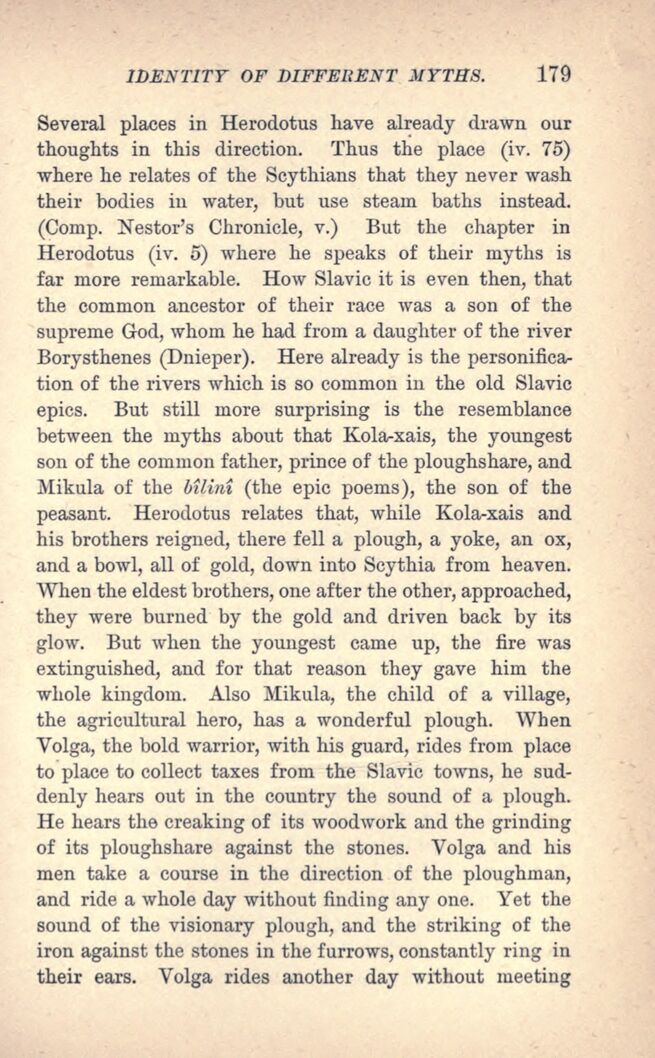
Full resolution (JPEG) - On this page / på denna sida - Impressions of Russian Literature - I

<< prev. page << föreg. sida << >> nästa sida >> next page >>
Below is the raw OCR text
from the above scanned image.
Do you see an error? Proofread the page now!
Här nedan syns maskintolkade texten från faksimilbilden ovan.
Ser du något fel? Korrekturläs sidan nu!
This page has been proofread at least once.
(diff)
(history)
Denna sida har korrekturlästs minst en gång.
(skillnad)
(historik)
Several places in Herodotus have already drawn our
thoughts in this direction. Thus the place (iv. 75)
where he relates of the Scythians that they never wash
their bodies in water, but use steam baths instead.
(Comp. Nestor’s Chronicle, v.) But the chapter in
Herodotus (iv. 5) where he speaks of their myths is
far more remarkable. How Slavic it is even then, that
the common ancestor of their race was a son of the
supreme God, whom he had from a daughter of the river
Borysthenes (Dnieper). Here already is the personification
of the rivers which is so common in the old Slavic
epics. But still more surprising is the resemblance
between the myths about that Kola-xais, the youngest
son of the common father, prince of the ploughshare, and
Mikula of the bîlinî (the epic poems), the son of the
peasant. Herodotus relates that, while Kola-xais and
his brothers reigned, there fell a plough, a yoke, an ox,
and a bowl, all of gold, down into Scythia from heaven.
When the eldest brothers, one after the other, approached,
they were burned by the gold and driven back by its
glow. But when the youngest came up, the fire was
extinguished, and for that reason they gave him the
whole kingdom. Also Mikula, the child of a village,
the agricultural hero, has a wonderful plough. When
Volga, the bold warrior, with his guard, rides from place
to place to collect taxes from the Slavic towns, he
suddenly hears out in the country the sound of a plough.
He hears the creaking of its woodwork and the grinding
of its ploughshare against the stones. Volga and his
men take a course in the direction of the ploughman,
and ride a whole day without finding any one. Yet the
sound of the visionary plough, and the striking of the
iron against the stones in the furrows, constantly ring in
their ears. Volga rides another day without meeting
<< prev. page << föreg. sida << >> nästa sida >> next page >>